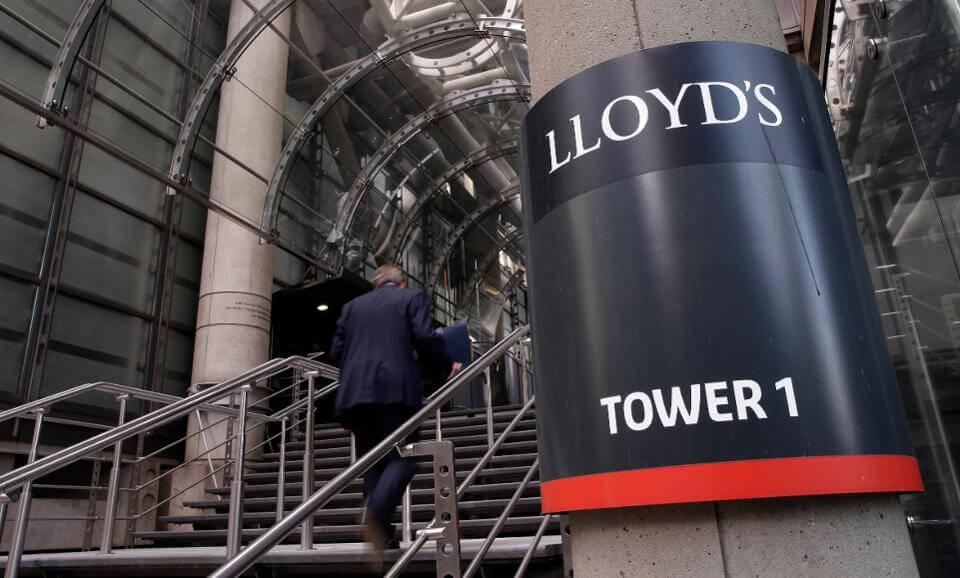

Īn Act for incorporation the members of the Establishment or Society formerly held at Lloyd's Coffee House in the Royal Exchange in the city of London, for the effecting of Marine Insurance, and generally known as Lloyd's and for other purposes. This arrangement carried on until 1773, long after the death of Edward Lloyd in 1713, when the participating members of the insurance arrangement formed a committee and underwriter John Julius Angerstein acquired two rooms at the Royal Exchange in Cornhill for "The Society of Lloyd's". 16 Lombard Street a blue plaque on the site commemorates this. Just after Christmas 1691, the small club of marine insurance underwriters relocated to No. Many years later, during the 2020 George Floyd protests, Lloyd's issued a statement, apologising "for the role played by the Lloyd's market in the 18th and 19th century slave trade - an appalling and shameful period of English history, as well as our own". Lloyd's obtained a monopoly on maritime insurance related to the slave trade and maintained it until the abolition of the slave trade in 1807.

Historian Eric Williams noted that "Lloyd's, like other insurance companies, insured slaves and slave ships, and was vitally interested in legal decisions as to what constituted 'natural death' and 'perils of the sea'". During this time, it was a hotspot also frequented by mariners involved in the slave trade. Soon, the captains on ships that were suggested to never come back were making bets on other ships that their ships would never come back. They would make bets on what ships would make it back to port. The shop evolved into a meeting place for people of all types of maritime occupations. The coffee house soon became recognised as an ideal place for obtaining marine insurance. The establishment was a popular place for sailors, merchants, and ship-owners, and Lloyd catered to them with reliable shipping news. The first reference to it can be traced to the London Gazette in 1688. The market began in Lloyd's Coffee House, owned by Edward Lloyd, on Tower Street in the City of London. History 17th–19th centuries: Formation and first Lloyd's Act The Subscription Room in the early 19th century Direct insurance represented 63 per cent of the premiums, mostly covering property and casualty ( liability), while the remaining 37 per cent was reinsurance. Around half of Lloyd's premiums emanate from North America and around one-quarter from Europe. In 2021 there were 75 syndicates managed by 50 "managing agencies" that collectively wrote £39.2bn of gross premiums on risks placed by 388 registered brokers. This chain consists of £55.2 billion of syndicate-level assets, £31bn of members' "funds at Lloyd's" and £4.9bn in a third mutual link which includes the "Central Fund" and which is under the control of the Council of Lloyd's. Having survived multiple scandals and significant challenges through the second half of the 20th century, most notably the asbestosis affair, Lloyd's today promotes its strong financial "chain of security" available to promptly pay all valid claims. The market's motto is Fidentia, Latin for "confidence", and it is closely associated with the Latin phrase uberrima fides, or "utmost good faith", representing the relationship between underwriters and brokers. Traditionally business is transacted at each syndicate's "box" in the underwriting "Room" within this building, with the policy document being known as a "slip", but in more recent years it has become increasingly common for business to be conducted outside of the Lloyd's building itself, including remotely. Today, it has a dedicated building on Lime Street which is Grade I listed. The market has its roots in marine insurance and was founded by Edward Lloyd at his coffee house on Tower Street in c. The business underwritten at Lloyd's is predominantly general insurance and reinsurance, although a small number of syndicates write term life insurance. These underwriters, or "members", are a collection of both corporations and private individuals, the latter being traditionally known as "Names". It operates as a partially-mutualised marketplace within which multiple financial backers, grouped in syndicates, come together to pool and spread risk. Unlike most of its competitors in the industry, it is not an insurance company rather, Lloyd's is a corporate body governed by the Lloyd's Act 1871 and subsequent Acts of Parliament. Lloyd's of London, generally known simply as Lloyd's, is a British insurance and reinsurance market located in London, England.


 0 kommentar(er)
0 kommentar(er)
